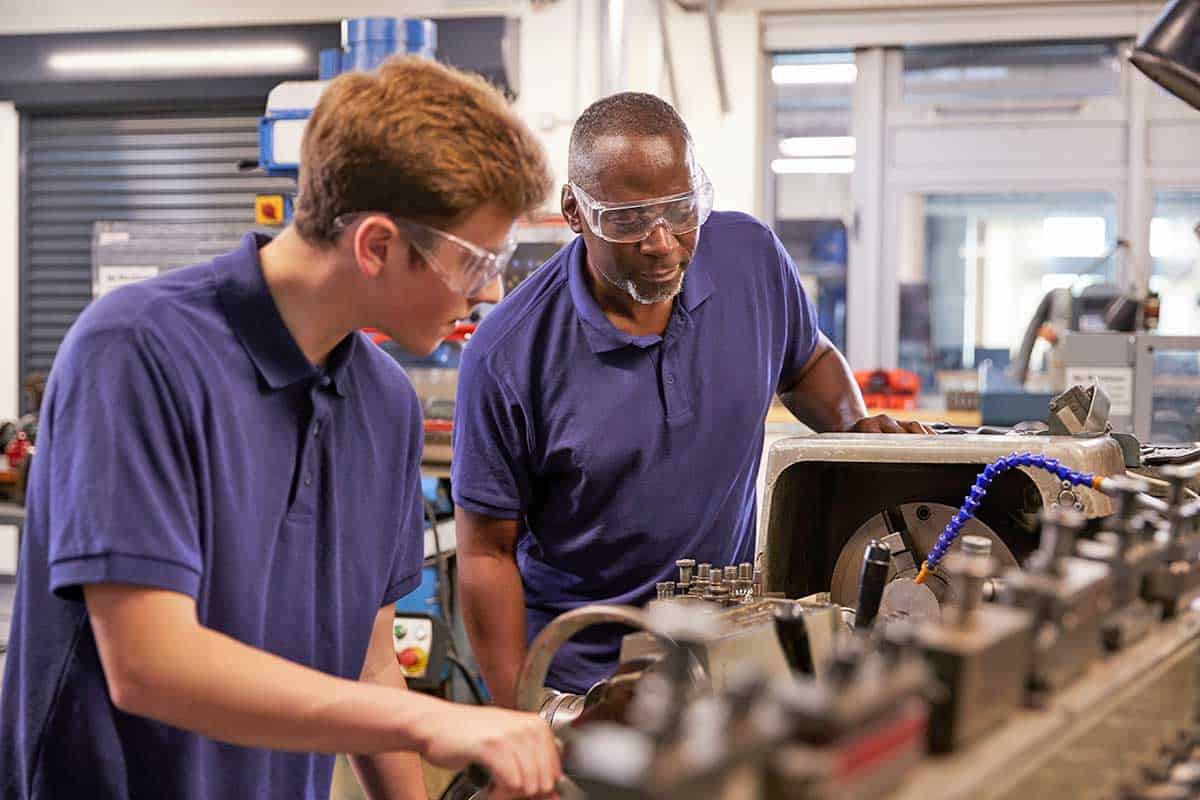
Career-Connected Learning, sometimes referred to as Work-Based Learning, is an educational model that introduces students to career paths and employment opportunities through interactive programs and partnerships with established business entities, professionals, and experts in different fields. It is a model that has successfully been adopted worldwide and has proven effective in carving a path to fill skills gaps in industries lacking qualified job applicants.
The United States currently faces several challenges regarding educational and professional pathways. Increasing tuition costs for four-year universities and a decrease in related employment opportunities have made many students reconsider their post-high school education and career options. Many feel confident that they are not ready for the economic stress coupled with traditional universities but are also often unaware of lucrative alternative opportunities. According to the US Bureau of Labor Statistics, there is currently a concerning gap in qualified middle-skill workers in the United States. Defined as a job that requires more education and training than a high school degree but less than one earned through a four-year university, middle-skill jobs are some of the most in-demand and well-paid in recent years. However, in pushing students towards more academic, university-centered careers, the current educational system has failed to present jobs in the middle-skill sector as beneficial and often necessary alternatives. The juxtaposition of these two circumstances offers a unique opportunity for career collective and work-based learning programs to thrive.
With employers reporting a significant lack of job applicants with minimum relevant work experience, technical, vocational, and soft skills, government agencies have created programs to combat the issue. Educational models incorporating career-connected learning (CCL), work-based learning (WBL), and vocational education and training are now being developed along with government funding and assistance initiatives. Included are employer subsidies in the form of grants, reimbursements, or tax credits, which vary depending on each state's unique laws and regulations. The economic initiatives coupled with program expansion efforts in different states represent a significant step forward to fill the skills gap; however, partnerships between educators and employers need to be emphasized for any real change to be sustained. When creating career-connected learning pathways, vocational skill-building opportunities such as apprenticeships and internships are critical.
A great example of these programs is Career Connect Washington, a community leadership organization that creates work-based academic programs for students. Through the use of their CCW Program Directory, they are able to publish career-connected partnerships and opportunities that students in the area can then choose to pursue. This type of network is significant because it creates and shines a light on job opportunities in the students' area while providing them an avenue to receive the education and training needed for the job. With the help of grants as well as organizations such as Microsoft Philanthropies, Washington State Building and Construction Trades Council, Washington State Board for Community and Technical Colleges, and many more, Career Connect Washington has succeeded in creating a community focused on building multiple sustainable pathways to lucrative careers for young students.
Career-connected learning programs are pivotal to the future fulfillment and success of the United States' middle-class jobs. Energy and sustainability careers are often associated with rigorous STEM degrees which leads them to be overlooked by students. However, opportunities in the energy sector are abundant, and can present themselves to those with varying educational backgrounds. At the end of the day, for environmental and sustainability efforts to be sustained in a community all aspects of infrastructure and industry need to work together and do their part. Traditional universities and careers that require only a high school degree are not for everyone, and thankfully they are also not the only option. If you are an educator or student, look into your area's career-connected and work-based learning opportunities. You could even be the first to reach out to organizations that may want to create a program with your school.
For more information regarding alternative careers in the energy sector, visit the Smart Energy Education website!
We'd love to help answer any questions and help you get started! Drop us a line and we'll get back to you as soon as we can.
Watt Watchers of Texas
204 E. Dean Keeton Street, Austin, Texas 78712
contact@watt-watchers.com
Nos encantaría contestarle cualquier pregunta que tenga y ayudarle empezar! Envíenos un mensaje y nos pondremos en contacto con usted lo antes posible.
Watt Watchers de Texas
204 E. Dean Keeton Street, Austin, Texas 78712
contact@watt-watchers.com